Developers offer mobility services to lure car-free renters
By BLOOMBERG | 09 September 2021
PHOENIX: Rising from a 17-acre lot outside Phoenix, Arizona, Culdesac Tempe is billed as the first and only zero-driving community built from scratch in the US.: Its future residents are contractually forbidden from parking a vehicle within a quarter-mile radius of the site.
They’ll have to rely on other modes, including a bundle of discounted mobility services provided for in their monthly rent, according to project leaders.
The us$170 million residential development will feature a plaza with scooter docks, car-share parking, and ride-hail pickup zones, with a light rail station across the street. When the first units open in July 2022, residents are set to receive complimentary access to a Lyft Pink subscription, preferred pricing for a fleet of Bird scooters, an Envoy car share membership, and free unlimited passes on the Valley Metro transit system.
“We’re finding that most people moving in are not planning to keep their cars,” said Lavanya Sunder, general manager at Culdesac Tempe.
“They don't have a car now or are planning on selling it, partly because we will have this multitude of mobility options onsite.”
Sunder said this marks one of the first times a Us real estate developer has included paid transportation options as part of the monthly rent, which starts at US$1,090 (RM4,530) for a studio and US$1,250 (RM5,194)for a one-bedroom.
When completed, the complex is set to include 761 apartment units as well as a grocery store, restaurant, cafe and co-working space, carving out a pocket of walkable, car-free living into a corner of one of America’s most autocentric metropolises.
The project has drawn intrigue, scepticism and praise since it was announced in 2019.
Urbanists have lauded Culdesac as a model for retrofitting suburban sprawl for a post-car era, while doubters have wondered if its residents will struggle to access the larger Phoenix area without their own cars.
There are also more global headwinds: Fears of Covid-19 infection have sustained drop-offs in transit ridership and driven up vehicle purchases in the US, while a recent Pew survey found a powerful partisan divide in the desire for walkable communities.
Yet people seem to want what Culdesac is selling. With 260 units slated to open between summer 2022 and spring 2023, 33 leases have been signed and about 300 people have put down US$100 (RM416) to remain on the waiting list, Sunder said.
Recent expansions by employers such as Peloton, DoorDash, and ZipRecuiter within Tempe seem to be driving some of the demand, as well as the pandemic’s rise in remote work.
While banning on-site parking marks a new level of ambition around the creation of car-free neighborhoods, Culdesac follows decades of planning philosophy and real-world examples, not including the millennia of city-building that preceded the automobile.
In recent years, cities like Portland, Boston, and Washington, D.C., have seen new housing go up without added parking (a rebuttal of development norms that require minimum number of residential parking spots), while the tenets of New Urbanism have given rise to countless mixed-use complexes wrapped around transit.
With transportation now accounting for the majority of US greenhouse gases, research has shown that housing that puts people closer to their daily activities and reduces their need to drive can be a significant driver of emissions reductions.
Affordable housing advocates stress that removing the expense of building mandatory parking facilities can help bring down the costs of new apartment construction and ease the national shortfall in lower-cost units.
Culdesac has raised US$17 million in venture capital to date, Sunder said, and is crafting plans for a larger project while the Tempe neighbourhood takes shape through partnerships with a number of traditional developers.
Paul Angelone, a senior director at the Urban Land Institute, said that the company can also serve as proof that other developers can get the backing needed to take the risk of breaking a century-long car-centric development model.
“It’s important to show that there are folks who finance this kind of development and support it, and that even a place like Phoenix can do it,” he said. “That can encourage others to do more of it going forward.”
Tags
Autos News
Reviews
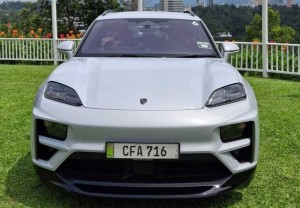
Porsche Macan EV: Re-energised exhilaration
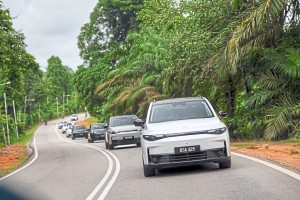
All-electric Leapmotor C10 SUV ticks all the right boxes
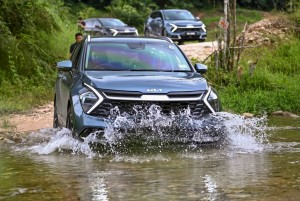
New Kia Sportage: Versatile and stylish
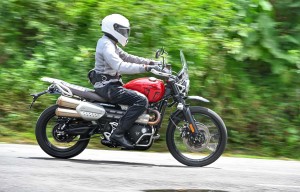
6.6
Triumph Scrambler 1200 X: A good balancing act
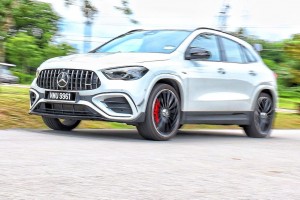
8.3
Mercedes-AMG GLA 45 S 4Matic+: Poking the pocket rocket
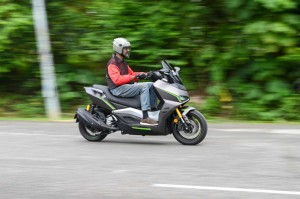
8.0
Moda Sporter-S 250: A new player in town
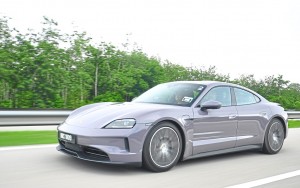
Porsche Taycan E-xperience drive: Kuala Lumpur - Kuantan

Mercedes-Benz E 350 e PHEV: Refined elegance, timeless prest...
Videos

StarCarSifu Editors' Choice Awards 2024: Top winners

The Snowball – Lamborghini’s Heartwarming Christmas Story of...

EVOGO battery swapping solution showcased at IAA Mobility 20...
